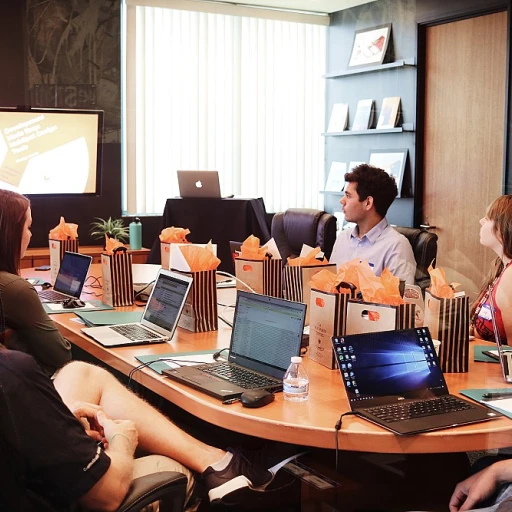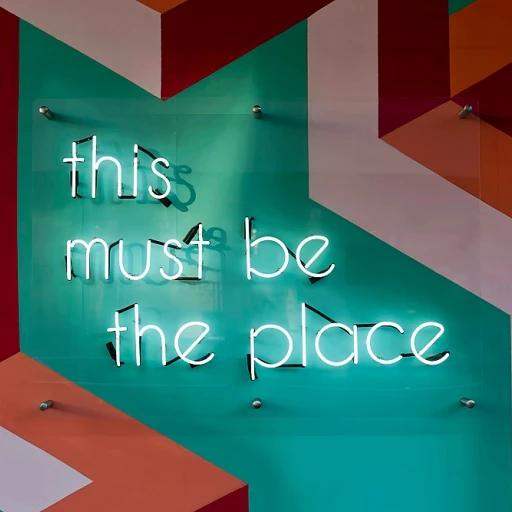
Understanding Intangible Skills
Unveiling the Core of Non-Technical Skills
In the swiftly evolving job market, the spotlight is turning towards a unique set of qualities—intangible skills, often referred to as soft skills. Unlike tangible or technical skills, these aren't easily measured or listed on a resume but possess immense value. Their relevance spans across industries, influencing outcomes in business, marketing, and even financial sectors.
The importance of intangible skills cannot be overstated when it comes to personal and professional development. From communication skills to emotional intelligence, these skills set apart candidates in a crowded job search landscape. They will help individuals navigate through complex work scenarios, providing a competitive advantage that technical prowess alone cannot offer.
For instance, the power of decision making, critical thinking, and problem solving are invaluable resources in any work environment. Managers and leaders often seek these intangible qualities in potential hires, as they frequently dictate the efficacy of collaboration and the success of team projects. Furthermore, understanding the impact of work ethic and how it intertwines with leadership skills can significantly boost one's professional trajectory.
It's essential to recognize that while hard skills can get you through the door, soft skills will help you thrive in your career. The integration of these skills not only enhances individual performance but also propels organizational growth. For a deeper exploration into the role of leadership within reskilling, consider exploring more about addressing weaknesses in leadership skills for effective reskilling.
The Role of Intangible Skills in Reskilling
The Importance of Intangible Qualities in Job Success
In today's rapidly evolving job landscape, companies are placing increasing importance on intangible skills. These are the subtle abilities that often set apart candidates and determine long-term success. While technical skills and tangible skills continue to play a crucial role, there is a growing recognition of the competitive advantage provided by soft skills like communication, emotional intelligence, and leadership. In the context of reskilling, intangible skills can greatly influence a candidate's performance. Employers and managers now prioritize these skills, as they directly impact problem solving, decision making, and overall work ethic. A strong set of intangible skills not only complements technical abilities but also enhances a candidate's resume and cover letter by highlighting attributes that are invaluable in any business environment. Moreover, intangible qualities facilitate effective communication skills, which are essential in today's interconnected world. As companies increasingly value collaboration and teamwork, employees must possess skills that transcend the mere execution of tasks. To truly excel in the job search, job seekers must develop and showcase these skills to potential employers. Understanding the role of intangible skills in reskilling can also assist in effectively channeling resources for personal development, thus opening up new work opportunities. As businesses strive for constant innovation and adaptation, problem solving and critical thinking skills become indispensable. In conclusion, as the job market continues to evolve, those who actively develop and integrate intangible skills into their work life not only enhance their job prospects but also contribute significantly to their professional journey.Identifying Your Intangible Skills
Identifying Personal Assets for Professional Growth
When it comes to career advancement and reskilling, recognizing and capitalizing on your intangible skills can be a game changer. These skills, often referred to as soft skills, encompass a range of abilities such as communication, emotional intelligence, and problem-solving capabilities. Unlike tangible skills, which are straightforward to list on a resume, intangible skills require a deeper level of self-awareness and reflection to identify effectively.
One of the first steps in identifying these vital abilities is to reflect on past work experiences and consider the skills that have consistently played a role in driving your success. Whether it's your knack for effective communication, your decision-making prowess, or your ability to cultivate strong relationships within a team, these intangible qualities can set you apart from other candidates.
Here are a few approaches to identify your intangible skills:
- Feedback from Colleagues: Consider seeking insights from managers and peers. Honest feedback can uncover strengths you might not have recognized in yourself.
- Self-Reflection and Assessments: Engage in self-evaluation or use tools designed to assess soft skills. This can enhance your understanding of where your true abilities lie.
- Reviewing Past Performances: Look at situations where you excelled without relying solely on technical skills. This can highlight skills like leadership, creativity, or a strong work ethic.
Incorporating intangible skills into your career strategy involves recognizing situations where these skills have added value. This can boost your job performance and provide a competitive advantage in your job search. When crafting a cover letter, showcase these elements by emphasizing specific experiences where your intangible skills played a pivotal role.
For a deeper insight into the evolving trends of today's workplace that may impact career development, explore this article on modern workplace strategies.
Developing Intangible Skills
Enhancing Personal and Professional Growth
Developing intangible skills is not merely an added advantage, but a crucial aspect of personal and professional growth. These skills, often referred to as soft skills, have the ability to transform how you perform in the workplace, setting you apart from other candidates. Whether it is leadership, communication, or emotional intelligence, dedicating time and resources to cultivate these skills can yield substantial benefits.
Adopt a Continuous Learning Mindset
The success of intangible skill development hinges on adopting a continuous learning mindset. This includes seeking feedback from peers and managers, attending workshops, and engaging in self-reflection. The commitment to lifelong learning will help refine your skills in critical thinking, decision making, and problem solving. These skills, coupled with a strong work ethic, create a competitive advantage in the business environment.
Leveraging Experiences and Resources
Your past work experiences can serve as a foundation for developing intangible skills. Whether your goal is to refine communication skills or improve leadership qualities, understanding previous job interactions can provide valuable insights. Additionally, utilizing resources such as online courses or mentorship programs can contribute significantly to your skill sets.
Translating Skills into Action
It is essential to practice and apply these skills regularly. Engaging in team projects, assuming leadership roles in small groups, or taking part in communication-focused activities can enhance your performance and knowledge. The practice of integrating skills into action reinforces their impact and effectiveness within your job duties.
Integrating Intangible Skills into Your Career Path
Integrating What Sets You Apart
Successfully navigating the evolving job market requires integrating intangible skills into your career path. The combination of soft skills with technical competencies can be pivotal in setting you apart from other candidates. Managers and employers today value well-rounded professionals who demonstrate both tangible and intangible qualities.
Incorporating these skills effectively starts with your resume and cover letter. Clearly articulate your abilities in problem solving, critical thinking, and communication. Highlight your work ethic and emotional intelligence as these are often the differentiators that employers seek. Including examples of how these skills have enhanced your performance in previous roles can significantly boost your job search efforts.
During interviews, let your experience take center stage by discussing scenarios where intangible skills made a difference in business outcomes. For instance, illustrate your leadership and decision-making capabilities by describing a situation where you had to adapt to changing work conditions or manage conflict within a team.
Beyond personal marketing, these skills play a crucial role in day-to-day work efficiency. Effective communication and problem-solving abilities help smoothen team dynamics and improve collaborative endeavors. This prevents potential misunderstandings and fosters a more productive working environment. Another key point is continuous development. The business landscape is ever-changing, and staying competitive requires regular updates to both your hard and soft skills. Utilize available resources like workshops or online courses to advance your knowledge and keep your skill set relevant.
As you aim for career growth, remember that integrating intangible skills doesn't only serve to enhance your individual performance. It contributes to the larger goals of the organization, thus providing you with a competitive advantage. Your ability to effectively combine these skills with your tangible competencies will be instrumental in offering value to prospective employers and advancing your professional journey.













